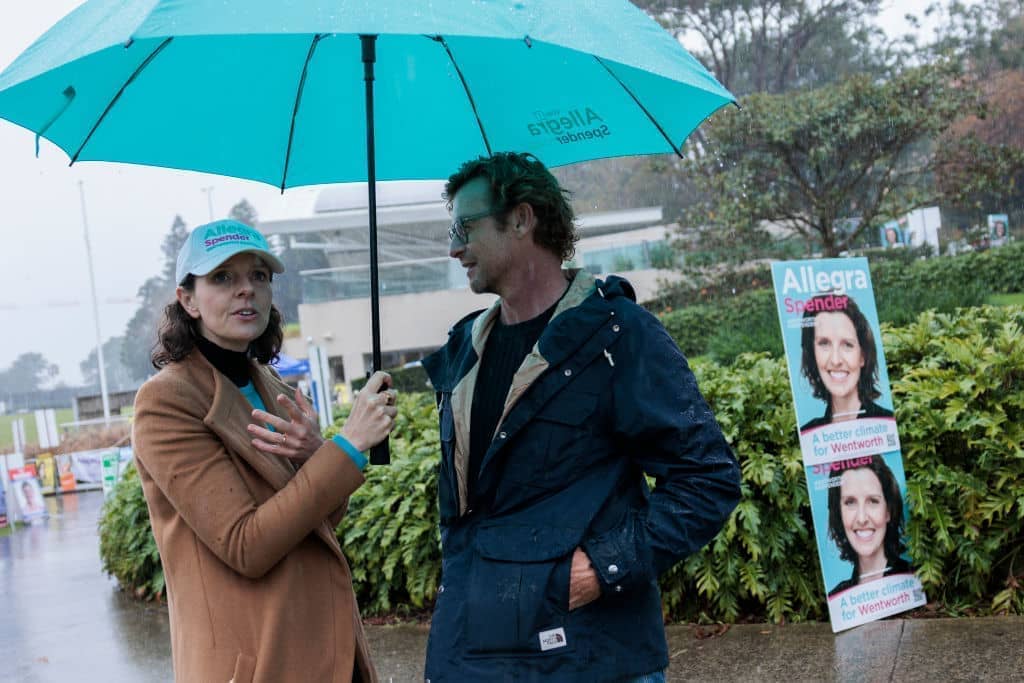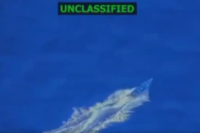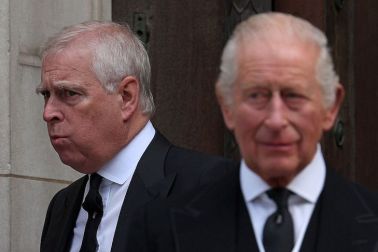Australia’s Prime Minister, Scott Morrison, is fighting a war on two fronts. Polling suggests his Liberal-National Coalition is set to lose to the Australian Labor party in the federal election today. But the PM is also being outflanked by independent candidates running in his party’s blue-ribbon, right-leaning heartland – but on a climate change ticket.
More than 20 so-called ‘teal’ independent seats are challenging sitting Liberal and National party members of Australia’s lower-house on a common platform of greater action on climate change and restoring integrity to politics. In at least six seats, teals are either the favourite or have a credible shot at knocking off Coalition incumbents. The betting markets and pollsters predict Australia’s Treasurer and Prime Ministerial aspirant, Josh Frydenberg, will lose his prized seat of Kooyong in Melbourne’s inner east, which the Liberals have held since their first election in 1945.
Despite fashioning themselves as independents, the teals have adopted a common political playbook. Each campaign is targeting an incumbent Liberal or National candidate in a formerly safe electorate, many spanning the most affluent, leafy and highly educated suburbs of Australia’s capital cities. Nearly all have adopted teal as their campaign colour – a suggestive blend of green and the Liberal party’s blue. Each candidate is funded and endorsed by ‘Climate 200’, an activist group established by the millionaire businessman Simon Holmes à Court. And nearly every candidate is a well-presented woman seeking to harness voters disenchanted with the government’s record on climate change, anti-corruption and gender equality.
This formula was pioneered in Australia’s 2019 federal election, when the climate-focused independent Zali Steggall deposed former Prime Minister Tony Abbott from his once safe-seat in Sydney’s northern beaches. It also neatly encapsulates many of the Morrison government’s biggest political blunders over this term of office. The last three years has seen the Prime Minister face scandals for holidaying in Hawaii during Australia’s catastrophic 2019 summer bushfires, wantonly pork-barrelling marginal seats before the last election and a perceived mishandling of sexual assault allegations within Parliament House.
Critics accuse the teals of concealing their true beliefs as left-wing insurgents intent on removing Morrison from office. Former Prime Minister and Liberal doyen, John Howard, has labelled the teals ‘anti-Liberal groupies’ who are ‘posing as independents’, cautioning voters to go ahead and vote teal if they want a Labor government. Morrison has dubbed them the ‘Voices of Labor and the Greens’. Liberal MPs who correctly note the fact that few teals are challenging Labor MPs have branded them ‘fake independents’.
The teals’ goal is to be kingmakers in a hung parliament. Yet their vision for the country is largely unknown
It’s no secret that the teal independents hope to deny the Liberal National Coalition a fourth term of majority government. But the notion that teals are sleeper agents for the Green-Left isn’t exactly credible either. Many are guided by their faith in technocracy more than any enduring ideology.
The teals’ pledge to restore ‘integrity’ to Australian politics is a case in point. The Morrison government has been drubbed for funding community sporting grants and car-parks in Coalition-held marginal seats, with the Australian National Audit Office finding that many funding allocations were not merit based. The teals have responded by calling for a ‘strong’, anti-corruption body ‘with teeth’, greater transparency around taxpayer funded programmes and ‘truth in political advertising’ laws. Yet when Allegra Spender, the teal candidate for Sydney’s harbourside seat of Wentworth, was asked whether a $500,000 grant used to renovate a well-appointed swimming pool in her harbourside seat of Wentworth, Spender said ‘We need an independent corruption commission to identify what is corruption…It’s not for me to say what is corruption’. If so, why then bother standing for Parliament?
If Spender really thinks an anti-corruption commission (read: a tribunal of ex-judges) is better placed to judge how public money is spent than representatives elected by the people, where does she think rule by bureaucrats ought to reasonably stop? If politicians can’t be trusted to renovate swimming pools, upgrade roads or build carparks, why not outsource the expenditure of every dollar in Australia’s federal budget to expert decree?
These same technocratic instincts emerge on climate change, where the teals’ signature policy is the establishment of a ‘climate commission’ to provide independent expert advice and monitor national progression on emissions reduction. Zoe Daniel, a former ABC journalist and teal running in the seat of Goldstein in Melbourne’s leafy bayside, likens the idea to the Australia’s Human Rights Commission – a ‘source of brilliant research across a range of relevant areas and an extraordinary resource.’ ‘Imagine what a similar climate rights commission might offer,’ wrote Daniels in the Australian newspaper.
Surrendering climate policy to a cadre of scientists might be appealing to those who think the pig-headedness of today’s politicians is the only thing standing in the way of decarbonisation. But doing so won’t erase the vexed trade-offs facing Australia’s transition to a low-emissions economy. Mounting evidence from Germany, California and across the developed world shows that increased reliance on renewable energy will increase electricity prices and lessen reliability. Absent a quantum leap in battery storage technology, the aggressive uptake of renewables in Australia will surely yield the same result.
A future Climate Commission might well think that a diminished industrial base and a lower standard of living is a worthy price for decarbonising Australia’s economy. But that’s the kind of thorny compromise we elect politicians, not clipboard wielding scientists, to make.
Beyond their post-materialist campaign promises, the teals have remained largely silent on many of the key challenges central to Australia’s future. The public does not know what the teal independents think about Australia’s increasingly fractious relationship with China, AUKUS security pact with the United States and United Kingdom, structural budget and mounting public debt or its overextended tax and entitlement system, to name a few.
The teal independents’ goal is to be kingmakers in a hung parliament. Yet astonishingly, their vision for how the country ought to be governed is largely unknown.
Will the teal independents live up to their lofty promise of restoring decency to Australian politics? More likely, their success will only serve to amplify the public’s disillusionment with Australia’s political class.






Comments